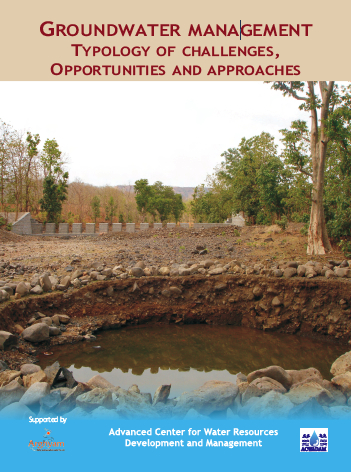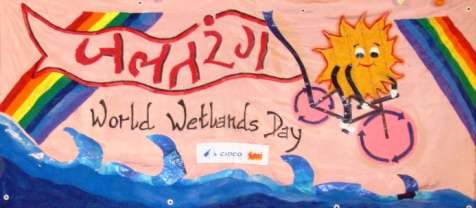/sub-categories/news-and-articles
News and Articles
Screenings/lectures/discussions - World Water Day 22nd/23rd March
Posted on 19 Mar, 2010 10:38 AM- New bill to penalize those wasting drinking water-Deccan Herald, Bangalore March 9
- Privatisation no solution to tackle water shortage in city- Deccan Herald March 9
- Water Crisis to worsen in city- Deccan Herald March 12
- City is the second highest water waster in country at 50.9% New Delhi top the list at 52.4%- Deccan Herald March 13
While all these questions remain unanswered and new ones add
The city gets thirstier under the scorching summer sun and the water vendors make fast buck in some instances as much as Rs 1000 for a tank load of water, a consortium of concerned organisations and institutions working on water and environment issues invite you to a panel discussion and film screenings on the use and abuse of water on March 22nd & 23rd 2010 at Ashirvad, 30 St. Mark Road Cross, Opp. State Bank of India at 5.45pm.
The wells brim with water in drought-prone Gujarat
Posted on 19 Mar, 2010 09:20 AMTHE WELLS of Kalawad village in Junagadh district, Gujarat brim with water. The reason — construction of check dams by a peasant, Mr.
Groundwater Management - Typology of challenges, approaches and opportunities - Research papers from the conference organised by ACWADAM and Arghyam at Pune (May 2009)
Posted on 17 Mar, 2010 04:40 AM A workshop on groundwater was organised by ACWADAM and Arghyam Trust in Pune in May 2009, that brought together several experts in the field, and explored diverse topics such as the importance of scale in groundwater resource planning and management, importance of aquifer typologies, participatory processes of groundwater management, groundwater regulation and groundwater linkages with watershed development, markets and policy matters.
A workshop on groundwater was organised by ACWADAM and Arghyam Trust in Pune in May 2009, that brought together several experts in the field, and explored diverse topics such as the importance of scale in groundwater resource planning and management, importance of aquifer typologies, participatory processes of groundwater management, groundwater regulation and groundwater linkages with watershed development, markets and policy matters.
The attempt of the workshop and research papers presented, was to highlight contemporary issues in groundwater management, and to look at it through the multiple lenses of hydrogeology, sociology, economics, livelihoods, environment, disasters and so on.
Action plan workshop for the rejuvenation and sustenance of the Arkavathi river basin - Discussion summary and research papers (2009)
Posted on 12 Mar, 2010 04:14 AMA one-day “Action plan workshop for the rejuvenation and sustenance of Arkavathi river basin”, was organised on 25th July 2009, by the Global Academy of Technology and Geological Society of India at Bangalore, to discuss the future of the dying Arkavathi river and Bangalore's precarious water situation, and to develop concurrent implementable action plans to address the problem. The Arkavathi is a tributary of the river Kaveri, originating in Nandi Hills in Chikkaballapur district, that provides about 20% of the total water requirements of Bangalore, with Kaveri providing the remaining 80%.
Jaltarang, a celebration of World Wetlands Day - An update from TERI's wetland management program in Navi Mumbai
Posted on 11 Mar, 2010 10:45 PM The satellite township of Navi Mumbai, with a total area of 344 km2, was developed in 1972 by CIDCO (City and Industrial Development Corporation) to de-congest the city of Mumbai. Initially a marshy land interspersed with villages, Navi Mumbai has been developed into a planned township, with much of its marshes and freshwater wetlands being converted into urban infrastructure.
The satellite township of Navi Mumbai, with a total area of 344 km2, was developed in 1972 by CIDCO (City and Industrial Development Corporation) to de-congest the city of Mumbai. Initially a marshy land interspersed with villages, Navi Mumbai has been developed into a planned township, with much of its marshes and freshwater wetlands being converted into urban infrastructure.
Navi Mumbai is a rapidly developing twin city. In the course of development, it was realized that more emphasis needs to be given towards the preservation and sustainable management of the freshwater wetlands it harbours. Given the vulnerability of these wetlands and their resource potential, there is an urgent need to develop a framework for sustainable use of freshwater wetlands. This requires efficient management systems and development of sustainable models, which would help maintain the natural characteristics of wetlands while also exploiting its potential to meet the socio-economic and recreational needs of communities. To tackle this important aspect, TERI conceptualized a pilot project with active support of CIDCO in October 2008. The Khandeshwar Lake was chosen as a model to demonstrate the feasibility as a ‘sustainable wetland’.
The attached presentation is an update on the work taken up and impact achieved since the start of the project, and includes details from the World Wetlands Day celebration organised on 2 February 2010. Details of TERI's wetland management program are here.
State Government of Bihar is inviting comments from the public, on the Bihar State Water Policy Draft (2009)
Posted on 11 Mar, 2010 05:06 AMIn the context of the guidelines of the revised National Water Policy (2002) which require the states to prepare a comprehensive state-level water policy, and also the need to pay special attention towards the construction of new irrigation projects, along with water management, land management, food management, floods management, ecological balance etc, in the context of the various new developments and problems being faced by the state of Bihar over the last decade or so, the Water Resources Department of the State Government of Bihar has prepared a draft State Water Policy (2009) and is inviting comments from the general public.
The Vand women of Kachchh - A case study on drinking water management from the work of Samerth Trust in Kutch, Gujarat
Posted on 07 Mar, 2010 02:23 AMThis case study is about Samerth's efforts to achieve drinking water security, in participation with local village communities in Rapar, Kachchh (Gujarat). Arghyam has been collaborating with Samerth on this effort since 2007.
The Vand Women of Kachchh: Guest post by Keya Acharya
She gazes unflinchingly with direct eyes into the camera with a feminine mystique and physique that could, be gracing the front cover of a beauty magazine. Her red, mirror-worked blouse, in the traditional Kachchhi style worn by tribal women, is strapped at the back in stringed bows, greatly practical in the dry, wilting heat of that arid expanse of land in hinterland Gujarat called Kachchh. Her skirt is a colourful hue of printed green, and her ‘dupatta’ is a blazing red piece of cloth swept forward from her waist, partially covering her back, brought over her head and tucked back demurely into her waist again. Her name is Ammi.
The best part of the story - A case study on drinking water management from the work of Samerth Trust in Kutch, Gujarat
Posted on 07 Mar, 2010 02:18 AMThis case study is about Samerth's efforts to achieve drinking water security, in participation with local village communities in Rapar, Kachchh (Gujarat). Arghyam has been collaborating with Samerth on this effort since 2007.
The Best Part of the Story: Guest post by Keya Acharya
The landscape is barren in parts with just high heat and sun-bleached sand, the hallmarks of wastelands; in other parts there is some semblance of agriculture, with jowar, bajra and sometimes castor growing in small patches of mild green, without the lushness that good watering provides.
And in the middle of this landscape there appears, like an oasis without the accompanying palms, the ‘Tinnavahd talab’, a drinking water pond constructed by the community at Rabarkar vand, near Lakhagarh village in Rapar taluk of Kutch district. Inside the pond there is a dugwell, constructed on the pond bed.
Entry 56 of List I and Entry 17 under list II of seventh schedule - Ministry of Water Resources (2010)
Posted on 04 Mar, 2010 02:22 PMEntry 56 of List I of Seventh Schedule provides that "Regulation and development of inter-State rivers and river valleys to the extent to which such regulation and development under the control of the Union is declared by Parliament by law to be expedient in the public interest".
Original document can be viewed here on the Ministry of Water Resources website